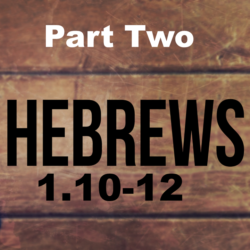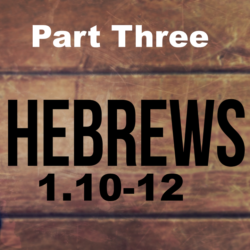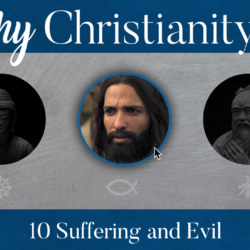Listen to this episode on Spotify or Apple Podcasts
This is part 6 of the Why Christianity class.
The Bible is such a strange thing. On the one hand, it looks like a big book, on the other hand, it’s a library of books. It’s loaded with very different kinds of literature from poetry and wisdom to history and prophecy. Dozens of people were involved in it’s production over centuries…and most important of all, it claims that the creator God inspired it all! In this presentation, Jerry Wierwille briefly covers what the Bible is, how Christians decided which books belong in it, how we transmitted it over the eons, and why other collections of books like the Apocrypha, Psuedepigrapha, and Gnostic Gospels didn’t pass muster.
—— Links ——
- See other episodes of Why Christianity
- More episodes about defending your faith here
- Join our Restitutio Facebook Group and follow us on Twitter @RestitutioSF
- If you’d like to support Restitutio, you can donate here or designate Restitutio as your charity of choice for Amazon purchases
- Leave a voice message via SpeakPipe with questions or comments
- Intro music: Good Vibes by MBB Attribution-ShareAlike 3.0 Unported (CC BY-SA 3.0) Free Download / Stream: Music promoted by Audio Library
—— Notes ——
How We Got the Bible
———————
Bible – from Greek biblia, meaning “books,” and then from the Latin biblia, meaning “book.” The Bible refers to the collection of sacred writings of the Christian Faith.
Canon – from Greek kanōn, meaning “a rule or standard.” A canon refers to an authoritative list of books accepted as Holy Scripture.
Criteria for Canonicity
1) Apostolicity
2) Orthodoxy
3) Catholicity
Inspiration – from Greek theopneustos, meaning “God-breathed.” It refers to the origin and character of a writing as being authored by and produced according to God’s will.
Supposed “Lost Books” of the Bible
———————————–
Apocrypha – from Greek apokryphos meaning “hidden, concealed, obscure.” It refers to a body of writings that are considered noncanonical.
Pseudepigrapha – writings with anonymous authorship that are falsely attributed to other individuals.







Good job